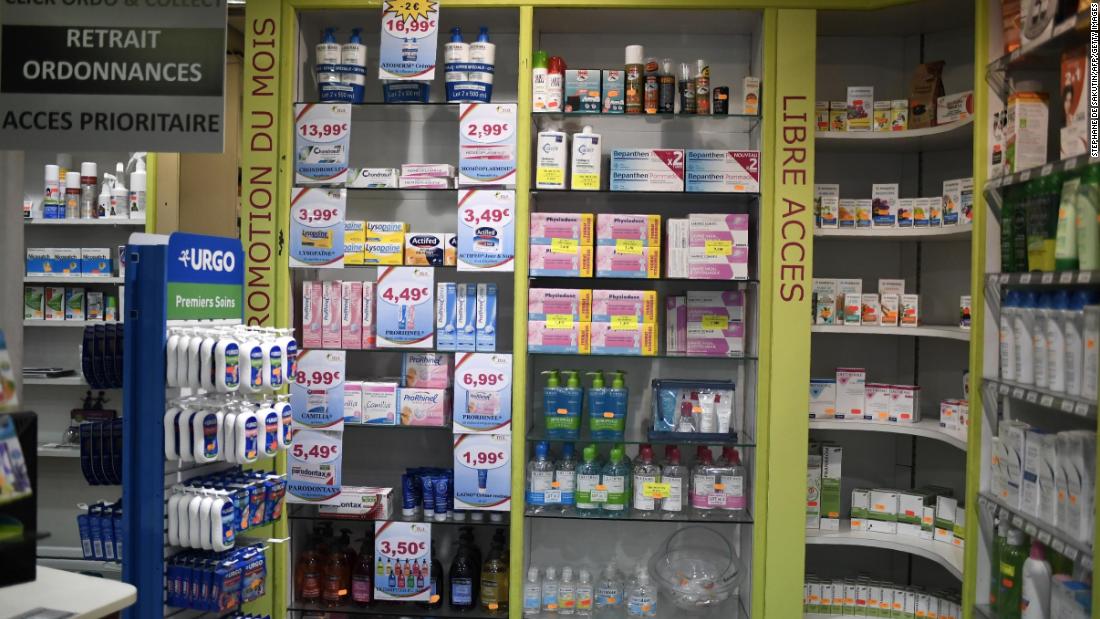
My little apartment gave onto a beautiful little garden filled with plants, which unfortunately only intensified my symptoms. My rescue inhaler was the powerful stimulant and bronchodilator epinephrine, and I was using it so frequently that I began to develop heart palpitations. I was pretty scared.
I unburdened myself to my landlords, who pointed out that a new young doctor from Paris had just opened a practice in the village. He took one look at my epinephrine inhaler and shook his head angrily. "That stuff will kill you," he said. Then he pulled out a new, blue inhaler—Ventolin. "Try this," he said. "It's the latest and it won't affect your heart." He wrote a prescription.
It was a miracle. A whole new world opened for me. For the first time in memory, I could breathe freely. I imagined how different my life as an asthmatic child would have been. I went back a week later and told the doctor how well it had worked. He smiled knowingly. But he cautioned I would not find it in the US, as it had not yet been approved by the Food and Drug Administration (FDA).
The active component of Ventolin, salbutamol, became commercially available in Britain in 1969. But the FDA would not approve it for sale in the United States more than a decade, until 1981.
Some New York asthma specialists would drive to Canada, taking out the side panels of their cars to smuggle back the drug for their patients, my regular pulmonologist told me.
I bought enough in France to last me until my next foreign assignment in Southeast Asia for The New York Times. It was early 1975, when I walked into a pharmacy in Bangkok and asked for Ventolin. The pharmacist pointed casually to a shelf where there were piles of them. It was available over the counter—six years before it could be prescribed legally in the United Sates.
The rationale, of course, was that American authorities were simply more cautious, waiting for results from many more tests before releasing most drugs to the public. But the reality was that a vast bureaucracy had grown up and was setting a glacial pace of drug approval, virtually without Congressional guidance.
Matters have improved somewhat since then. Drugs today can go to market with special fast-track procedures that dramatically accelerate the approval process and I am able to find the three asthma drugs that I take every day in many US pharmacies. But the new obstacle is price.
Late last year, I had a rude awakening when I walked into Duane Read on Lexington Avenue in New York and ordered a renewal of my prescription for one of my asthma drugs. The bill? $450 for three months' supply.
That was just the copay. Without a private drug plan, the real cost of my daily medicine Advair would be closer to full retail price of $1,263, or $5,052 for one year.
But that was nothing like my shock upon walking into the tiny pharmacy near the Musée d'Orsay in Paris, a week later. There, a three-month supply for Advair was the equivalent of $125. Had I been a French taxpayer, it could have been free.
The stakes are high for me: Both of my uncles died in their sixties from asthma, more than 20 years ago. I've made it to 74 and am thriving—but I need these drugs to stay alive. So I had to know: How does France keep drug prices so low?
The United States is currently searching its soul about its sky-high local drug prices, highlighted in government hearings over the cost of insulin—a life-or-death treatment for diabetics. As the larger debate over US healthcare veers between advocates of French-style universal health care (known in the US as "Medicare-for-All') and those who want to erase even Obamacare's modest government controls, it's worth taking note of the French system.
The short answer for the drug price disparity is that France has enormous bargaining power with drug manufacturers. The French government runs the country's universal healthcare program, which makes it by far the largest purchaser for most drugs. So when it sets price ceilings for drug-makers; those limits generally hold.
The resulting cheaper prices at the pharmacy don't just make life easier for consumers like me. Lower prices from the outset also mean that France's entire healthcare system carries a lighter financial burden.
Asked about French and US prices for Advair, its maker, global pharma company GlaxoSmithKline attributed the gap to "fundamental differences in healthcare systems and countries around the world [that] make price comparisons very difficult and potentially misleading," spokeswoman Kristen Neese told me in an e-mail.
Neese also warned that French-style centralized price regulation "results in restricted access to medicines and fewer choices for patients."
But the US is one of the world's largest markets for prescription drugs, which makes the government's potential bargaining power enormous. If the US began regulating drug prices—or even ultimately serving as the only real customer under some sort of prescription-drugs-for all plan—it's unlikely that major pharmaceutical companies would risk turning their backs on all those potential sales—even if at lower profits than they're used to.
Bringing the US government's negotiating power to bear on drug prices would be a huge first step in helping people who don't have the kind of health insurance that make my lifestyle possible.
But it doesn't have to start in Washington, DC.
A major private entity could step in as well—imagine the possibilities if Amazon, with its recent purchase of PillPack, decided to use the full force of its negotiating power for the benefit of its 100 million Prime members.
Doesn't US President Donald Trump love negotiations where he has the upper hand? And surely Jeff Bezos?
No comments:
Post a Comment